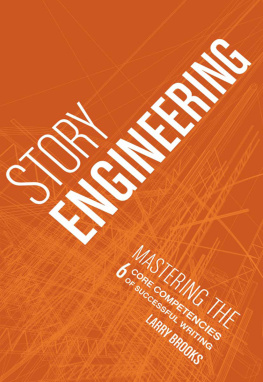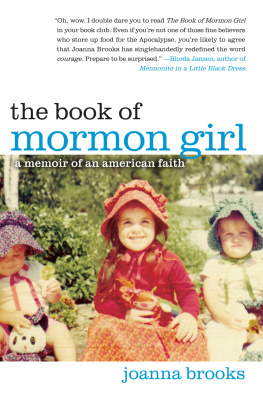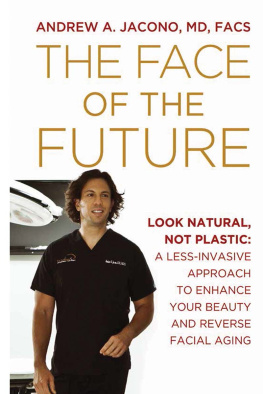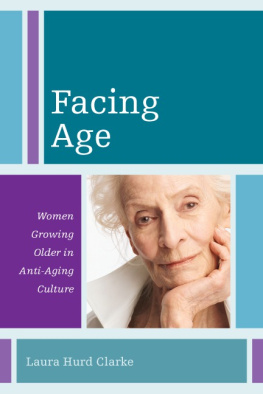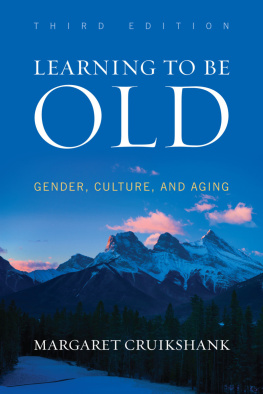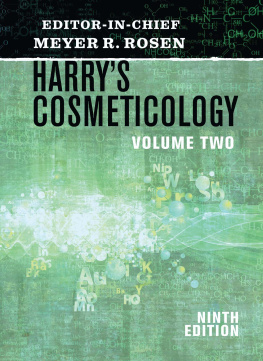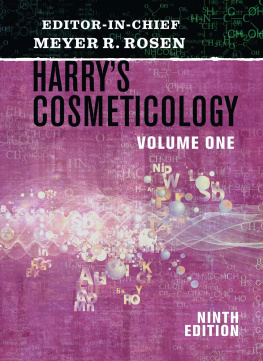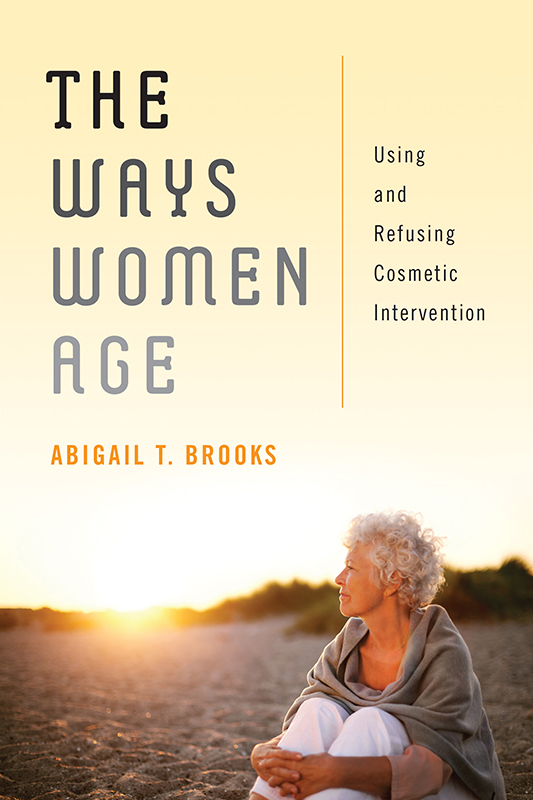
The Ways Women Age
The Ways Women Age
Using and Refusing Cosmetic Intervention
Abigail T. Brooks

NEW YORK UNIVERSITY PRESS
New York
NEW YORK UNIVERSITY PRESS
New York
www.nyupress.org
2017 by New York University
All rights reserved
References to Internet websites (URLs) were accurate at the time of writing. Neither the author nor New York University Press is responsible for URLs that may have expired or changed since the manuscript was prepared.
ISBN : 978-0-8147-2410-1 (hardback)
ISBN : 978-0-8147-2405-7 (paperback)
For Library of Congress Cataloging-in-Publication data, please contact the Library of Congress.
New York University Press books are printed on acid-free paper, and their binding materials are chosen for strength and durability. We strive to use environmentally responsible suppliers and materials to the greatest extent possible in publishing our books.
Manufactured in the United States of America
10 9 8 7 6 5 4 3 2 1
Also available as an ebook
Contents
First and foremost, I would like to express my deepest appreciation and gratitude to the women who courageously and generously shared their stories with me. It is these women, their insights, perspectives, experiences, thoughts, and feelingsthat inspired and created this book.
My adored and admired grandmothers, Polly Schoyer Brooks and Priscilla Brock Baker, ignited my passion for the subject matter that is this book. My mother, Pebble Baker Brooks, my dear friend, my guide, and my mentor, inspired and sustained me in infinite ways, and in all stages, throughout the writing of this book. I cannot begin to express in words my love and gratitude for my husband and life partner, John E. Rogers, for his boundless love, support, and nurturance for me throughout this years-long process. Both of our children, Cora Rosemary and Thomas Lee Benjamin, were born during different stages of the research and writing of this book and the love, cheer, and refreshment they bring offered just the right balance of grounding and buoying to get me through.
Without Johns infinitely generous and loving care of our children, and without being able to continuously depend on the love and caretaking of their amazing grandmothers, it would have been impossible for me to write this book. Thank you to John, and to Mom, and to my lovely mother-in-law, Ailene Rogers, for taking such wonderful care of Cora and Thomas over these many months and yearsI am beyond lucky, as they are too.
My father, Turner Brooks, has been unwavering in his love, and instrumental and enthusiastic in his support, throughout the entirety of this project. My sister and brother, Rosie and Ben Brooks, provided constant support, and showered me with love, humor, and compassion from beginning to end.
I am incredibly grateful to Ilene Kalish, Executive Editor at New York University Press, for her steadfast belief in, enthusiasm for, and commitment to this book, and for her invaluable editorial feedback, wisdom, and guidance throughout. I am most appreciative of the excellent feedback I received from my anonymous reviewers. Caelyn Cobb, Assistant Editor at NYU Press, was instrumental in shepherding this book to completion, and generously shared vital expertise and assistance from beginning to end. Managing Editor of Production and Design at NYU Press, Dorothea Stillman Halliday, and her outstanding team, provided exceptional guidance and oversight in the final stages.
I treasure my friendships with Ann Woodruff and Laney Nielson, who tirelessly shared with me their love, insights, confidence, support, and perspectives throughout this long process. My wonderful friend, Leah Schmalzbauer, was incredibly generous with her love, support, and mentorship every step of the way. My friendships with Meika Loe and Deborah Piatelli were instrumental, and much-relied-upon, sources of support, guidance, nurturance, and humor over the course of this long journey. I am also grateful to Kelly Joyce, Patricia Arend, and Aimee Vanwagenen for their encouragement and helpful feedback at various stages of this project. Thanks go, too, to Liz Barragato and Erma Vizenor for their fundamental belief in me, for their nurturance and skilled guidance, and for their clear-eyed vision that proved essential to my moving forward.
Stephen Pfohl, I thank you for believing in this project from the beginning to end, for your inspiring and brilliant teaching and scholarship, for your unwavering support, invaluable feedback, and guidance, and for your friendship. Juliet Schor, I thank you for the instrumental insights, advice, and wisdom you provided me in crucial stages of this project, for teaching me to be a better writer, and for your continuing and most generous mentorship. David Karp, I thank you for being an inspiration to me as a teacher, way back when I was a TA for your Introduction to Sociology class, for your invaluable feedback and support, and for your scholarship, the epitome of exemplary qualitative research. I would also like to thank Diane Vaughan and Arthur Kroker, who provided pivotal encouragement in the very early stages of this project, and Sharlene Hesse-Biber, who provided excellent feedback at various stages, as well. I am grateful, too, to Margaret Morganroth Gullette, for her interest in my work, for her insights and feedback, and for her own inspiring and path-breaking work as a feminist age studies scholar.
I am very lucky to call Providence College my institutional home, and I am grateful for my wonderful colleagues and friends in the Sociology Department, and in the Womens Studies Program, here. Maureen Outlaw and Charlotte OKelly, of the Sociology Department and the Womens Studies Program, and Eric Hirsch and Cedric de Leon, of the Sociology Department, have been especially supportive. My heartfelt thanks to the first and founding members of the Providence College Womens Studies Program whom I have had the honor of working with: Jane Lunin Perel, Mary Anne Sedney, Deborah Johnson, Wendy Oliver, Carmen Rolon, and again, Charlotte OKellyto each of you, I remain infinitively appreciative of your support, wisdom, guidance, and friendship.
I thank the Director of the Black Studies Program, and my colleague in womens studies, Julia Jordan-Zachery, for her invaluable advice and encouragement. I am also indebted to my colleague in womens studies, Gloria-Jean Masciarotte, for her inspiration, much-relied-upon knowledge and expertise, and for her friendship. Enthusiastic thanks also go to womens studies faculty Mary Bellhouse, Elizabeth Bridgham, Jennifer Illuzzi, Jessica Mulligan, and Tuire Valkeakari; to Professor Emerita, Jo-Anne Ruggiero; and to Tuba Agartan and Deborah Levine. Cindy Walker of the Womens Studies Program remains a treasured and essential source of expertise, assistance, support, and friendship. I thank Marcia Battle, of the Sociology Department, for her compassion, humor, and friendship. I am grateful to Beth Macleer, of ONeill Library at Boston College, and Julie de Cesare and Mark Caprio, of Phillips Memorial Library at Providence College, for their research support and assistance. I am an incredibly appreciative recipient of the Providence College pre-tenure, one-semester, research leave.
Last but not least, I would like to thank my students in both sociology and womens studiesfirst, at Boston College, and now, at Providence Collegefor their inspiration, enthusiasm, and invigorating relationships of mutual learning and critical thinking. I never cease to be energized by my studentsboth inside and outside of the classroomand my relationships with current students, and with former students well after graduation and into their rich, varied, and important post-college pursuits, provide me an endless source of joy and inspiration.
Next page




